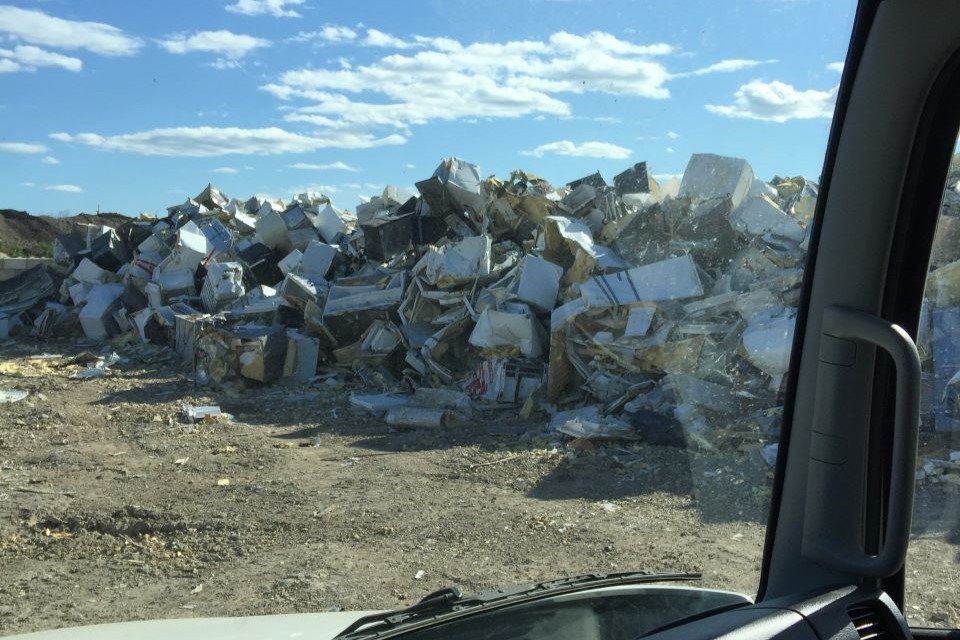Jasper residents have been waiting anxiously to return home as crews continue to fight wildfires and work to restore critical services.
But for many residents, there will be a smelly surprise waiting for them.
For the past three weeks, fridges and freezers in town have been sitting without power and food spoiling inside, leaving them unfit for human use.
Officials are still working on a plan to remove and replace these fridges but were able to provide some details during an Aug. 6 telephone town hall.
Jasper CAO Bill Given said they had already had conversations about this with the insurance industry.
“My understanding is that industry is looking at some collective solutions for this,” Given said. “We’ve also wanted to ensure that we're providing information to evacuees and folks that are thinking about this because it is also case dependent. My understanding is that not every white good (refrigerator or freezer) will necessarily need to be thrown out.”
The Insurance Bureau of Canada is now developing a plan for the disposal process and working with health officials to see if certain appliances could be spared.
“So, we need some clear guidance and that's being developed right now as well, but we want you to be rest assured that when the residents are able to return, we do have a plan in place,” said Rob de Pruis, the bureau’s national director of consumer and industry relations.
“The insurance industry was assisting with this in Fort McMurray. We’ve done it before, and we’ll be working with all of the necessary stakeholders and many of the other people that are involved in order to make sure this is done properly and effectively.”
MIB Moving was one of two companies tasked with removing contaminated fridges from houses following the 2016 Fort McMurray wildfire and also brought in thousands of new fridges to Fort McMurray.
Connie Shields, president of MIB Moving, said her workers all had to wear PPE, including glasses and overalls, when going to remove the fridges, which were all taped shut.
“And so, what people would do is they would take up their fridges and put them out to the street, and then we would come by and pick them up, and then we would go to the landfill,” she said.
“We'd line them up in rows, and the landfill guys would come and take the Freon out, and then they were all crushed.”
Shields advised resident to never to open a contaminated fridge, noting that the stink could be as bad as that of a decaying animal depending on how much meat was in the fridge.
Given the smaller size of Jasper, the collective undertaking to remove all these fridges might not be as massive compared to Fort McMurray’s, but both situations are ultimately similar.
“I see all similarities,” Shields said. “I mean, I would assume that power has been cut off for a lot of the homes that are affected. Once you’ve lost power, you’ve lost your fridge.”
Another thing Jasper and Fort McMurray have in common is bears.
“The bears are a real issue, and that was one of the reasons why people were told, whatever you, do not set it out there without it being taped up because the bears are looking into it,” Shields said. “And then the other thing is that there are kids outside. They’ll get into them too … Even if it wasn’t full of food, kids getting in and playing and the door shutting on them, you don’t want to see anything like that happening.”
Shields also talked about how an Edmonton company had gone to Fort McMurray to pick up all the high-end fridges and resell them.
“They literally capitalized on the devastation here. When an insurance company is paying you out for your fridge, they're paying you out for your fridge because it's contaminated for human use,” Shields said.
“When you've got mould spores in your fridge, how do you clean that?”
She recommended people beat up their old fridges before setting them out on the curb.
“When you put your fridge out there, take your frustrations out on that fridge. Grab a hammer and beat the daylights out of it so that nobody's going to want to clean it up and sell it to somebody else.”



